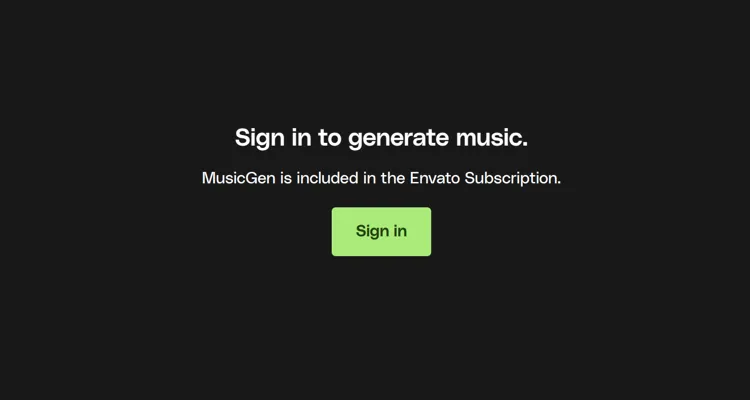Photo Credit: Envato
Creative marketplace Envato has launched a new AI-generated music tool for creators to make custom tracks from text prompts within seconds. But what’s the human cost for artists who rely on sync placement for their income?
MusicGen leverages advanced AI models like Google Lyria 2 to deliver royalty-free, customizable music at no extra cost to Envato subscribers. The platform also expanded its partnership with PremiumBeat, adding over 40,000 studio-quality tracks and bringing its total music assets to more than 300,000.
Models like Google Lyria 2 were trained on vast datasets that included copyrighted tracks—often without explicit permission from rights holders. The ‘ask for forgiveness, not permission’ method has allowed Ai systems to learn from the creative output of hundreds of musicians, absorbing their styles and unique artistic signatures—allowing them to generate royalty-free music instantly. This gives content creators a way to bypass traditional licensing and sync placements that provide vital income for human musicians.
Industry data shows that up to 18% of all music uploaded to streaming platforms is now fully AI-generated—directly competing with human-created works. While MusicGen and similar tools allow speedy music creation without licensing headaches, the music industry is left to grapple with the consequences. Without robust labeling, traceability, and fair compensation in place, the rise of AI-generated music risks displacing human talent and collapsing the value of music as a profession for working artists.
In the past, every sync placement or commercial use of a track required a license, ensuring that artists were compensated each time their work was used commercially. With AI-generated music, that income model has drastically shifted. Models trained on vast libraries of human created music can mimic any style and endlessly produce new tracks not tied to an individual artist—eliminating the need for sync discussions, licensing, or royalty payments.
The result is that a once critical revenue stream for artists is effectively erased and replaced by a model that prioritizes unlimited, on-demand access over fair compensation for creators—who helped train these models in the first place.
Content shared from www.digitalmusicnews.com.

